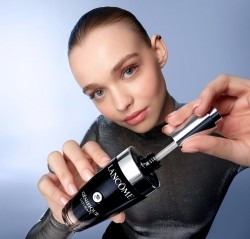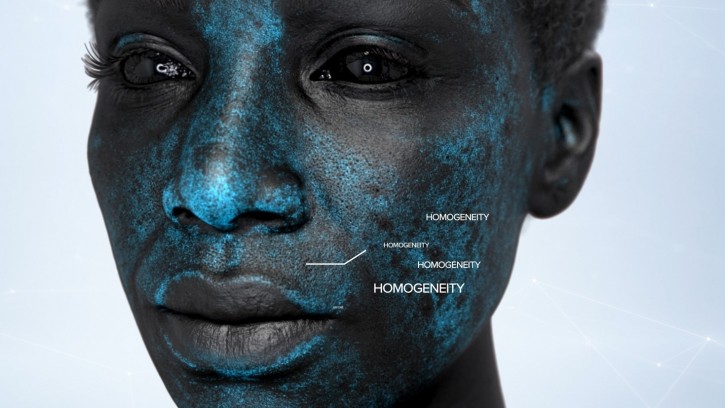Contents
- 1 Cosmetics Design-Europe: (CDE) In what ways has Cydolia been working with prominent beauty manufacturers?
- 2 CDE: How do you expect it to impact the cosmetics R&D process?
- 3 CDE: What kinds of challenges did you face when developing this tech and how did you overcome these?
- 4 CDE: Are you planning to launch this kind of tech for other beauty and personal care categories?
- 5 CDE: What else are you working on now?
As more beauty shoppers demand proof of product efficacy, we spoke to the CEO of beauty tech company Cydolia about its work with Lancôme and how it’s aiming to make skin care “more personalised, predictive, and scientifically driven than ever before.”
Paris-based tech company Cydolia, which specialises in 3D acquisition, analysis, and reconstruction of skin properties, is an expert in its field and has worked alongside leading industry players such as L’Oréal Group, Chanel, and Beiersdorf.
Most recently, the company released a video that showcases its 3D simulation and visualisation technology, based on clinical trials data, which it said can help cosmetic brands “precisely showcase the benefits of their products across optical, metric, and mechanical skin parameters.”
The video gives detailed visualisations – such as zoomed-in views of wrinkle reduction, acne diminution through heatmaps, and the firming mechanical effect of a cream – which are customisable and can be applied to the digital double of a volunteer or a non-existing customisable digital human. This can include different phototypes and skin types, along with other specific attributes that are compliant with the clinical trials.
We spoke to the CEO of Cydolia, Cédric Guiard, about how Cydolia’s recent tech advancements can help R&D and marketing experts in the product development process, along with what the company is working on next…
Cosmetics Design-Europe: (CDE) In what ways has Cydolia been working with prominent beauty manufacturers?
Cédric Guiard (CG) Cydolia has been deeply involved in collaborative projects with some of the world’s leading beauty brands, bringing our cutting-edge technology to the forefront of cosmetic innovation.
Our most recent notable public collaboration was with Lancôme for the launch of Génifique Ultimate. We provided innovative clinical trials on product efficacy and bias-free before/after visualisations.
Our pioneering 3D evaluation and simulation technology played a crucial role in supporting the results of Génifique Ultimate. Lancôme partnered with us, leveraging our high-tech solutions to capture every angle of participants’ faces before and after two months of using Génifique Ultimate. By reconstructing these faces in 3D, we were able to eliminate visual biases, such as variations in lighting and daily skin condition, allowing for an accurate evaluation of the product’s effects on the skin.
The technology we developed is capable of assessing key skin parameters like the skin clarity, texture quality, redness, pores, and fine lines. Through high-precision 3D photographic capture across all skin types, Cydolia produced exclusive, state-of-the-art before-and-after images for Lancôme, demonstrating the effectiveness of Génifique Ultimate.
This partnership exemplifies our baseline “Cosmetic marketing proven by science,’ highlighting how our scientific approach brings credibility and precision to the beauty industry.

CDE: How do you expect it to impact the cosmetics R&D process?
CG: In addition to the need for more efficient and unbiased measuring tools, we address two key challenges in the R&D process.
First, the traditional approach to measuring various skin parameters often requires multiple specialised tools or outsourcing to different CROs, which creates inefficiencies in time, space, and stakeholder management. With Cydolia, R&D teams can seamlessly evaluate all optical, metric, and mechanical skin parameters from a single 3D 360° acquisition. This flexibility extends to both our in-house facilities and on-site deployments at client premises or CROs, ensuring that the process is streamlined and adaptable to the unique needs of each project.
Second, our involvement at the product formulation stage significantly reduces iteration times by allowing teams to quickly and objectively compare different formulations. This rapid comparison capability enables faster decision-making and optimisation, ensuring that the most effective products move forward in the development process. This not only accelerates the R&D timeline but also enhances the overall efficiency and effectiveness of the innovation cycle.
Finally, we recognise the difficulty of internal communication, particularly between R&D and marketing teams, who often operate in silos and speak different technical languages. Cydolia bridges this gap by transforming complex efficiency data into clear, educational visuals. This enables R&D teams to communicate their results effectively across various business units, fostering alignment and facilitating a more integrated, informed decision-making process.
CDE: What kinds of challenges did you face when developing this tech and how did you overcome these?
CG: Initially, our 3D acquisition and reconstruction technologies were developed to address the specific demands of creating 3D digital doubles for high-profile figures such as actors, athletes, and singers in film production.
Achieving a level of realism where these digital doubles are indistinguishable from the real individuals required to change the approach of facial simulation to found these 3D models on the analysis and reconstruction of very detailed acquisitions. This meant not only modelling a believable representation but accurately characterising the physical appearance and expressiveness specific to the considered subject.
To accomplish this, we had to develop advanced methods for analysing and modelling the skin, focusing on its texture, optical properties, and rheological behaviour – essentially how the skin deforms and reacts under different conditions. These are complex, multi-layered processes that require precise 3D imaging and simulation technologies.
For the quantification and communication of cosmetics products effects, we pushed the boundaries of our 3D evaluation and simulation technologies so that they entirely benefit from the accuracy of these physically based 3D models.
One of the most significant challenges we faced was eliminating biases introduced by variations in pose and expression at different measurement points. This is particularly challenging when dealing with diverse subjects who differ in morphology, age, and skin types. To overcome this, we developed proprietary technology encompassing both hardware and software, allowing us to eliminate all traditional evaluation bias.
This scientific and technical rigour is at the core of our approach, enabling us to produce results that are both reliable and repeatable across a wide range of applications in the cosmetic industry.
CDE: Are you planning to launch this kind of tech for other beauty and personal care categories?
CG: Beyond skin care, we have already expanded our technology to evaluate the performance and longevity of various makeup products, such as foundation, lipstick, and eyeshadow. This work extends to creating virtual try-ons for these products, enabling consumers to see how they will look in real life, not just through a digital filter. Our physically based simulations are grounded in scientific accuracy, which helps increase consumer trust by providing results that closely mimic actual product behaviour on the skin.
Moreover, our technology allows brands to simulate the application and wear of these products on brand ambassadors for commercial purposes. This ensures that the products are represented with the highest level of realism, further bridging the gap between digital representation and reality.
As we continue to develop and refine our technology, we are also exploring its application in other categories. We are currently working to expand our cosmetic and dermatological offerings to conduct efficacy tests for injectable products in aesthetic medicine and to meet pre-visualisation needs in plastic surgery. Our aim is to provide scientifically accurate tools across a broader range of cosmetic and medical applications, enhancing the consumer experience and supporting our partners in presenting their products with unmatched realism and reliability.
CDE: What else are you working on now?
CG: One of the most exciting projects we’re currently working on with our R&D team involves long-term skin simulation, allowing us to predict how skin will evolve with and without the use of certain products over time.
Imagine being able to visualise the impact of a sunscreen or anti-ageing cream on your skin not just in the immediate term, but over years. This kind of simulation could revolutionise the way consumers make decisions about their skincare routines, offering a glimpse into the future effects of their choices.
We’re also exploring ways to integrate these simulations with personalised data, creating a truly tailored skin care experience. By combining our high-precision modelling technology with individual factors like skin type, environmental exposure, and lifestyle habits, we aim to offer a predictive tool that’s as unique as each person’s skin.
This approach has the potential to transform the industry, making skin care more personalised, predictive, and scientifically driven than ever before. It’s an ambitious vision, but one that could redefine how we think about skin care and beauty. We’re incredibly excited about the possibilities and would love to connect with those who share our passion for pushing the boundaries of what’s possible in cosmetics and dermatology.

